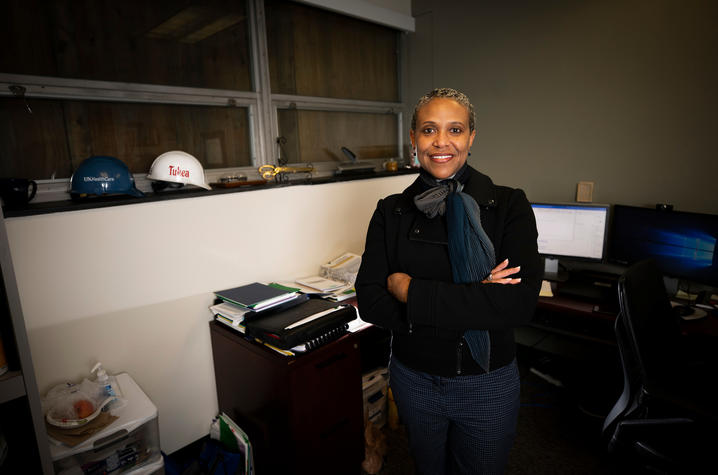
Spotlight: Tukea Talbert, Member of DEI Leadership Team
Tukea Talbert, UK HealthCare's recently appointed chief diversity officer, serves as a member of the DEI leadership team. I had the honor of sitting down with her to hear about her passion for and commitment to her community.
If someone asked you, “What is UK’s Diversity, Equity and Inclusion (DEI) plan?”, what would you tell them? What, in your mind, would be an indicator that we have made progress?
I think DEI is very vast, it’s evolving, it’s promising and has a lot of moving parts. I believe we are a rocket approaching readiness for take-off. I would say we have most of the right things in place in terms of thought leaders and subject matter experts. We are evolving and maturing in both our resources and also the process that will get us to the next step.
There is definitely renewed energy around the DEI work and renewed commitment from the very highest levels in our organization like President Capilouto and Dr. Mark Newman. This is evident in the diversifying of teams at the executive level, and there have been some very bold actions around how we look at that level and consider not just differences in race and ethnicity, but also in thought processes. That’s what drives change at that level, and hopefully it transcends throughout our enterprise and organization.
I think those are some things that excite me about what we’re doing. Those actions show success in an early phase because the work is yet to be done, but the intent is there, and the infrastructure is forming to support a sustainable path forward for the DEI work. That’s exciting.
Can you talk about the relationship between UK HealthCare (UKHC) and main campus related to DEI?
UKHC is a very integral part of this work for DEI. I believe this community and the health of this community can be optimized if we’re very intentional about our efforts to collaborate and connect and synergize those efforts. I think it is at this juncture where we will have limitless possibilities by working intentionally together and being inclusive of “both sides of the fence.”
Do you have any advice for people who are getting involved with DEI work?
One of the things we’ve talked about in the past, is “Why do you feel this work is important?”. I think that people, whether that’s patients, staff, faculty or students, have a basic human need to feel connected and included and to have a voice. The very foundation of this work is to create that space where everyone from all backgrounds are respected, treated with dignity and given space to be their true self. Until those basic human needs and rights are met, people will not thrive. When people thrive, then the entities they are attached to also thrive. You start outperforming your competitors and you start achieving the unimaginable.
Structural racism is deep and broad and wide. So, the work you do in this space also has to be deep and broad and wide and it has to be unrelenting. You have to make some bold statements and bold actions.
Why is DEI at UK important? Why are you passionate about DEI work?
I believe my role on the DEI Leadership Team is a very intentional opportunity to be a bridge between UK and UKHC to optimize our success. This work is important, and we should all be singing from the same hymnal, if you will. DEI also solidifies and makes it very intentional, the partnership with campus colleagues to identify and execute best practices, and also the opportunity to optimize our use of community experts throughout our campus and hospital.
DEI work is a people business. It’s about looking at the value of people and what they bring to the table, what they bring to the team and how we achieve outcomes through people. It’s about breaking glass ceilings and working beyond some of the traditional perceived boundaries with the partnerships across campus, within the hospital and throughout the community.
The COVID-19 pandemic and issues around the nation and world in terms of structural racism show us that this is a time that is very important. It cannot just be a moment but has to be a movement that is sustainable and that we are all very serious about. We must hold ourselves accountable to being engaged and connected to one another and our community. Our community has a voice, and they know what they need. This work is bigger than any one individual – it’s for the greater good of all. It truly is a work of unlimited possibilities.